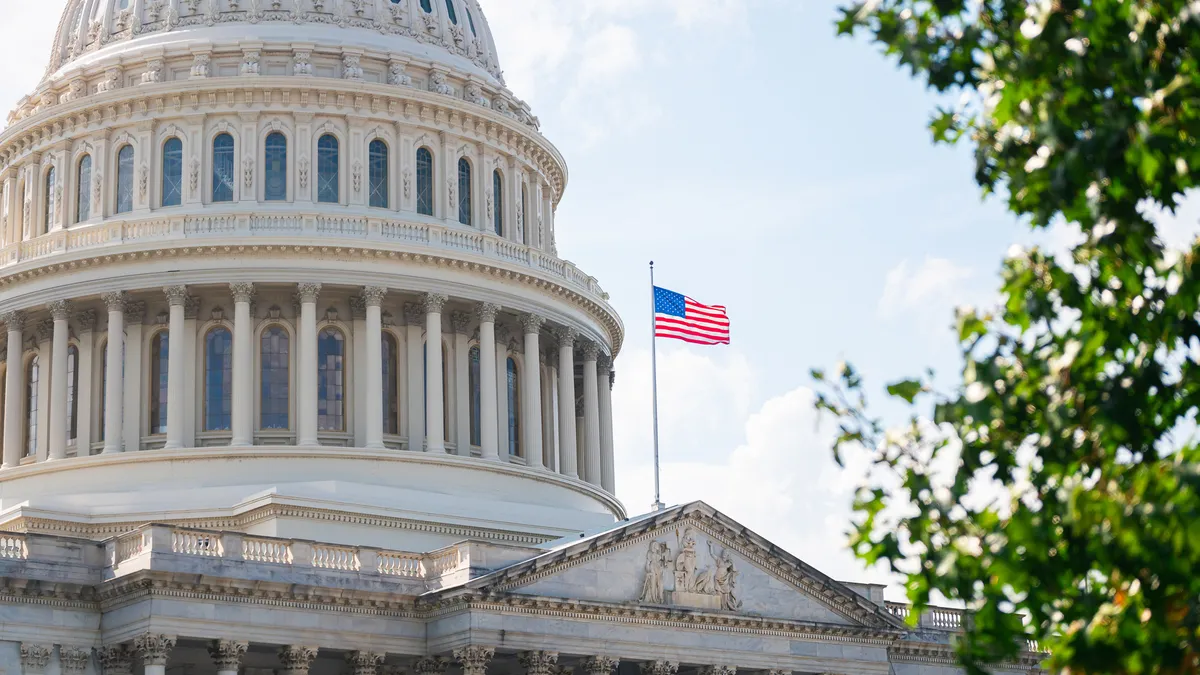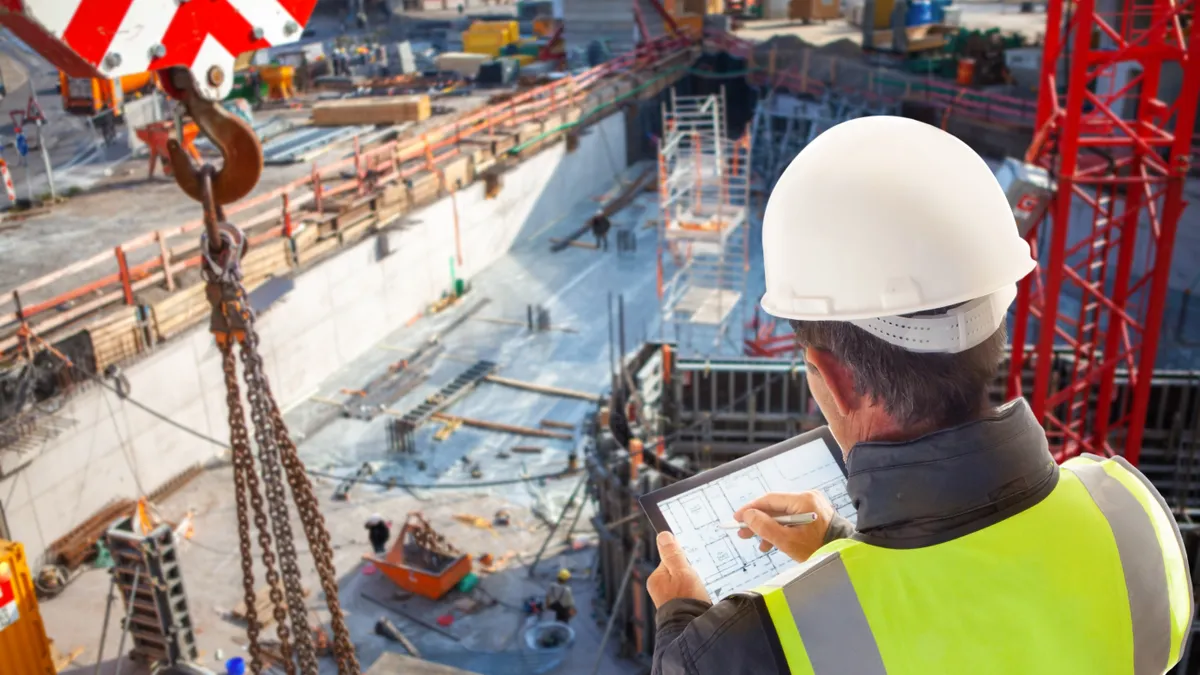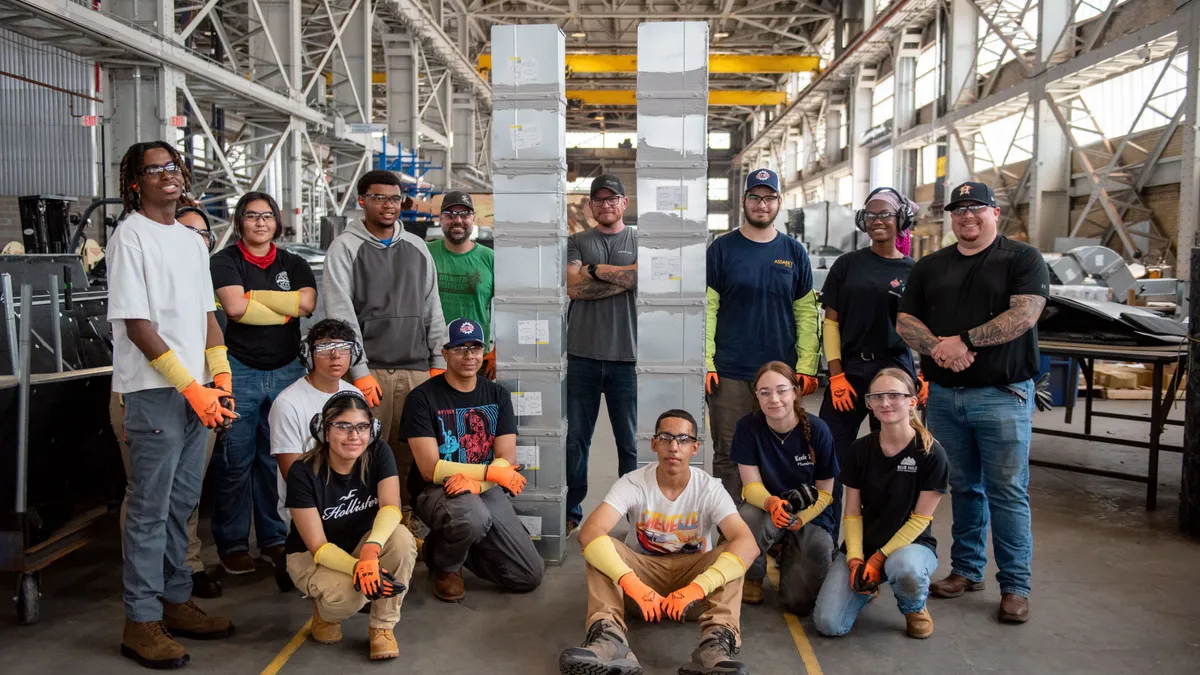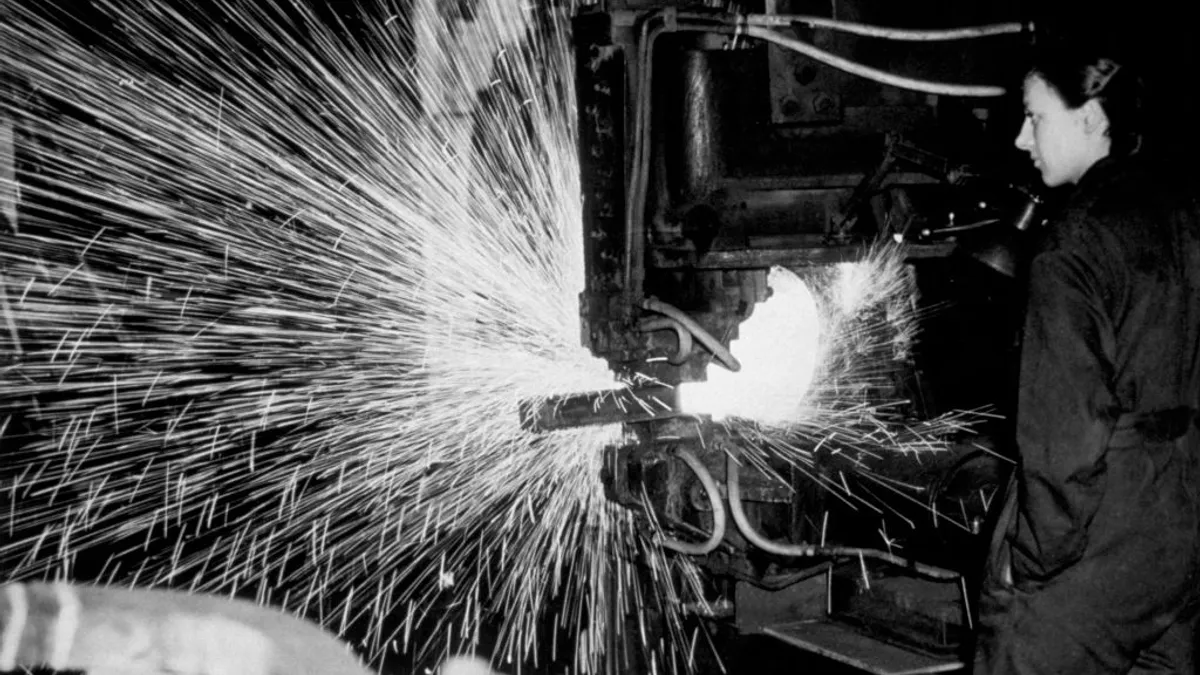A first-year tradesworker apprentice is at the center of an international conflict over his mistaken deportation to El Salvador. His family, the Supreme Court and now his union have all called for his return to the U.S.
Kilmar Abrego Garcia, a Maryland man legally in the U.S. after fleeing his native country who has never been charged with a crime, was at the start of an apprenticeship with the International Association of Sheet Metal, Air, Rail and Transportation Workers Local 100 chapter in Prince George’s County.
“This egregious violation of our brother’s rights has been acknowledged by federal courts and even the U.S. government, which admits his removal was an ‘administrative error,’” read an April 10 SMART statement calling for his return. “However, Kilmar remains in custody overseas, and the federal government has failed to take action to bring him home, even contesting a court order to do so.”
On Monday, El Salvador's President Nayib Bukele met at the White House with President Donald Trump and said he did not intend to return Abrego Garcia to the U.S., calling the idea of doing so “preposterous.” He also referred to Abrego Garcia as “a terrorist.”
White House officials on Monday attempted to change the narrative surrounding the controversy by claiming Abrego Garcia wasn’t deported by mistake, according to NBC News.
On March 12, Abrego Garcia was unlawfully detained, SMART claims, and, according to court documents, was deported March 15 to El Salvador, a country he had fled and was granted asylum from in 2019.
The Justice Department, in court documents, conceded that “Abrego Garcia was improperly removed to El Salvador.” But it also said he could be removed to anywhere else in the world, since his asylum only prevented his “removal to El Salvador alone.”
On April 10, the Supreme Court upheld a Maryland District Court decision, ordering President Donald Trump’s administration to return Abrego Garcia.
But doing so isn’t easy, as it would require the cooperation of El Salvador, something Bukele vowed not to do.
Beyond that hurdle, Attorney General Pam Bondi said the administration's obligation for the return only extended to providing a plane, but ultimately Abrego Garcia is in El Salvador’s custody, NPR reported.
SMART said the government’s actions went beyond its authority.
“The United States Government has no legal authority to snatch a person who is lawfully present in the United States off the street and remove him from the country without due process,” SMART’s statement read. “The Government’s contention otherwise, and its argument that the federal courts are powerless to intervene, are unconscionable.”
Response and impact
A critical mass of construction workers are foreign-born employees: About 26% of workers in construction are immigrants and 13% of people employed in the industry are not authorized to work in the U.S., according to Pew Research Center estimates.
Trump made campaign promises to carry out mass deportations, actions which began swiftly when he took the oath of office and U.S. Immigration and Customs Enforcement posted on X, formerly Twitter, daily arrest numbers.
The posts indicated the administration would first seek to arrest and deport those unauthorized to be in the U.S. who also had criminal records, yet the agency has deported numerous men without criminal records, according to investigations from the New York Times and NPR.
Critics had called into question the efficacy, logistics and costs of Trump’s policy before Abrego Garcia and others were deported.
“Kilmar Abrego Garcia’s mistaken deportation to El Salvador is not just a bureaucratic mistake. It is a breach of due process and a failure to uphold the rule of law,” said George Carrillo, co-founder and CEO of the Hispanic Construction Council. “Situations like this painfully show how flawed immigration systems can strip away the humanity of individuals by treating them as case files instead of people with aspirations and rights.”
Carrillo called for the return of Abrego Garcia and for the implementation of safeguards “to prevent such tragedies in the future.”
John Dorer, CEO of eb3.work, a company that connects employers with foreign-born workers and aids those workers with obtaining EB-3 visas, said removing individuals in the U.S. with legal work authorization can interrupt project timelines and create further project uncertainty amid an already steep labor shortage.
“Speaking more broadly, removing individuals in defiance of U.S. Supreme Court rulings is not just a legal issue. It sets a dangerous precedent for how laws are interpreted and enforced,” Dorer said in an email to Construction Dive. “This undermines stability for businesses and workers alike.”





















